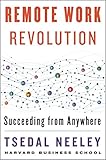Ever feel like you’re constantly plugged in, even when you’re off the clock? That creeping exhaustion, the difficulty focusing, the Sunday night dread – these are all too familiar signs of burnout, a growing concern, particularly for those of us embracing the flexibility of remote work. As a nutritionist and meal prep coach, I’ve seen firsthand how lifestyle, including work habits, can significantly impact well-being. Let’s explore the best strategies for avoiding burnout and reclaiming your energy while working remotely.
Understanding the Remote Burnout Beast
Burnout isn’t just tiredness; it’s a state of emotional, physical, and mental exhaustion caused by prolonged or excessive stress. In the remote work landscape, the lines between work and personal life can blur, leading to overwork, difficulty disconnecting, and feelings of isolation. Recognizing the unique challenges of remote work is the first step to conquering burnout.
The Blurred Lines of Work-Life Integration
One of the biggest culprits of remote work burnout is the always-on mentality. When your office is your living room, it’s tempting to answer emails at all hours or squeeze in “just one more task” after dinner. This constant connectivity can lead to a lack of downtime, essential for recharging and preventing burnout.
The Isolation Factor
While remote work offers flexibility, it can also lead to feelings of isolation and loneliness. Missing out on casual water cooler conversations or team lunches can impact your sense of connection and belonging, contributing to burnout.
Building Your Burnout Shield: Effective Strategies
Fortunately, burnout is preventable. Implementing these strategies can help you create a sustainable and fulfilling remote work experience.
Setting Boundaries: Your Fortress of Focus
Establishing clear boundaries between work and personal life is crucial. Set specific work hours and stick to them. Create a designated workspace, physically separating your work life from your home life. Communicate your availability to colleagues and family, setting expectations for when you can be reached. This compartmentalization helps create mental space for relaxation and rejuvenation. As Arianna Huffington, founder of Thrive Global, says, “Boundaries are not a way to be unkind, they are a way to be kind to ourselves and to those around us, so we can be the best version of ourselves in all aspects of our lives.”
Mastering the Art of Disconnection
Disconnecting after work hours is just as important as setting boundaries. Close your laptop, turn off work notifications, and resist the urge to check emails. Engage in activities that help you unwind and recharge, like spending time with loved ones, pursuing hobbies, or simply relaxing.
Prioritizing Self-Care: The Foundation of Resilience
Self-care isn’t a luxury; it’s a necessity, especially in a demanding remote work environment. Prioritize activities that nourish your physical and mental well-being, like regular exercise, healthy eating, mindfulness practices, and getting enough sleep. Remember, you can’t pour from an empty cup.
Cultivating Connection: Building Your Remote Tribe
Combatting isolation is key to preventing burnout. Schedule regular virtual coffee breaks with colleagues, join online communities related to your work or interests, and make an effort to connect with friends and family outside of work hours.
Optimizing Your Workspace: Creating a Sanctuary of Productivity
A comfortable and well-organized workspace can significantly impact your productivity and well-being. Ensure your workspace is ergonomically sound, with proper lighting and ventilation. Personalize your space with plants, inspiring artwork, or anything that brings you joy.
The Power of Breaks: Recharging Your Mental Battery
Taking regular breaks throughout the day is essential for maintaining focus and preventing burnout. Step away from your computer, stretch, go for a walk, or engage in a quick mindfulness exercise. Even short breaks can make a big difference in your energy levels and overall well-being.
Embracing Flexibility: The Remote Work Advantage
One of the greatest benefits of remote work is flexibility. Use this to your advantage by scheduling your workday around your peak productivity times. If you’re a morning person, tackle your most challenging tasks early in the day. If you’re more productive in the afternoon, schedule meetings and less demanding tasks for the morning.
Seeking Support: Don’t Go It Alone
If you’re struggling with burnout, don’t hesitate to seek support. Talk to your manager, a trusted colleague, or a mental health professional. There are resources available to help you navigate the challenges of remote work and reclaim your well-being.
 Avoiding Burnout in Remote Work
Avoiding Burnout in Remote Work
Reclaiming Your Energy and Thriving in Remote Work
Burnout is a serious concern, but it’s not inevitable. By implementing these strategies, you can create a sustainable and fulfilling remote work experience that prioritizes your well-being. Remember, taking care of yourself is not selfish; it’s essential for achieving your full potential, both personally and professionally.
Key Takeaways for Conquering Remote Burnout
- Boundaries are your best friend: Set clear boundaries between work and personal life.
- Disconnect to reconnect: Turn off work notifications and engage in relaxing activities after work hours.
- Self-care is non-negotiable: Prioritize activities that nourish your physical and mental well-being.
- Connection is key: Combat isolation by actively seeking out social interaction.
- Optimize your workspace: Create a comfortable and inspiring environment that promotes productivity.
- Take breaks: Regular breaks are essential for maintaining focus and preventing burnout.
- Embrace flexibility: Leverage the flexibility of remote work to optimize your schedule.
- Seek support: Don’t hesitate to reach out for help if you’re struggling.
What strategies do you use to avoid burnout while working remotely? Share your tips in the comments below!
- Hardcover Book
- Neeley, Tsedal (Author)
- Hardcover Book
- Dry, Joey (Author)
- Greene, Ali (Author)
- English (Publication Language)
- Hardcover Book
- Sternberg MD, Esther M. (Author)
- Amazon Kindle Edition
- Nikolson, S (Author)
- Hawkins, Eric (Author)
- English (Publication Language)
- Gant, Will (Author)
- English (Publication Language)
- and wellness, CJ health (Author)
- English (Publication Language)
- Bloomsbury Publishing PLC (Author)
- English (Publication Language)
- Amazon Kindle Edition
- Swigunski, Michael (Author)











